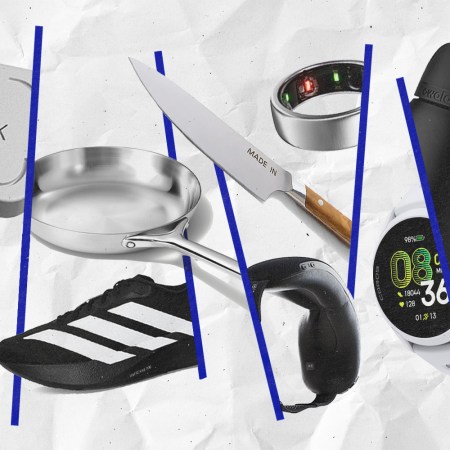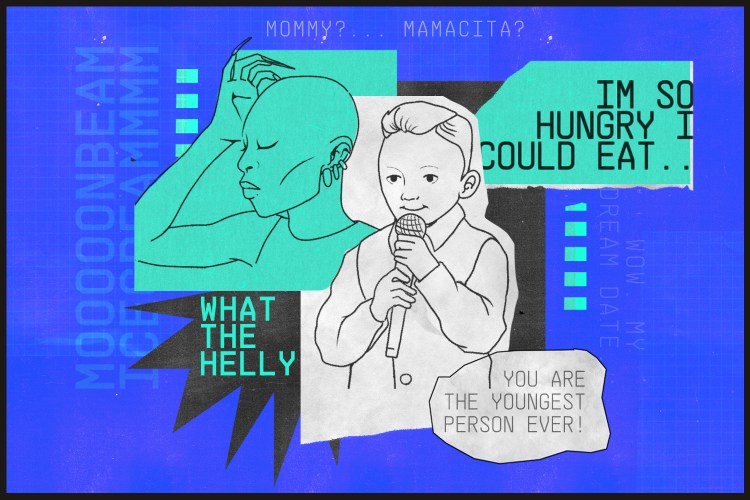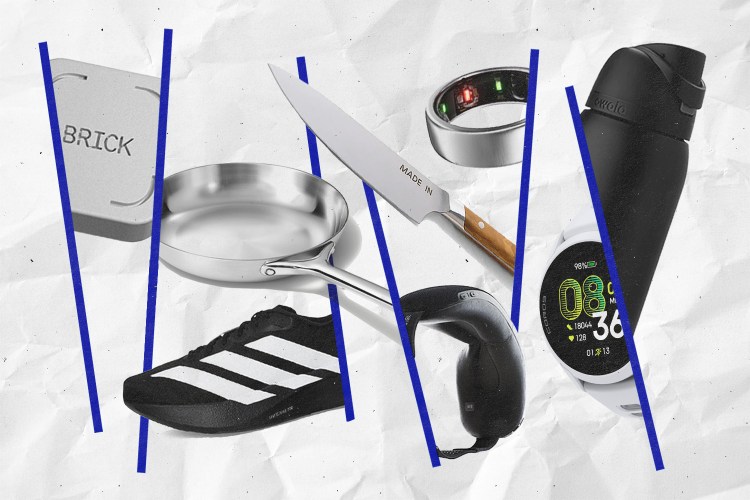Growing up, there was a coach in my hometown whose speeches were so good, parents used to show up early to pick-up at the end of a day of camp or practice just to hear what he had to say. He was a natural storyteller, and he favored narratives about ordinary people accomplishing extraordinary things. These sessions would invariably end with a simple CTA for the rest of our days: “Be brave, be kind and don’t let anybody steal your peace.”
As a kid, I imagined these peace-stealers to be all the obvious foes in my life — bullies, athletic rivals, teachers who had it out for me, my siblings during an argument. Later in life, I realized that “anybody” really meant anybody. It included me, too.
As good as human beings are at stealing the peace of others (especially in the internet age), we’re even more talented at stealing peace from ourselves. We know our deepest insecurities, perceived weaknesses and stickiest traumas better than anyone else. We know just the memory to produce when presenting the case that we’re not good at something; we know just the internal monologue for twisting the knife when we’re feeling lonely or lazy or ashamed.
It’s dark stuff, but that’s just an average afternoon in the human brain. Even mentally fit people experience at least fleeting brushes with unhelpful thought patterns. Others — particularly those who have PTSD — can find these loops constant and crippling. But by and large, everyone suffers to some degree from what are known as “cognitive distortions.” They’re factually untrue biases that discolor our perception and processing of the exterior world.
What Are Cognitive Distortions?
Cognitive distortions tend to present the world as an incessant hall of mirrors. The truth is stretched to make way for something scarier and more entertaining, where the most dramatic answer prevails. At some point in our evolutionary history, the brain’s madcap preference for cognitive distortion probably made sense; if you just barely escaped a jungle cat and lived to see another day, for example, you might employ a variety of cognitive distortions. Here are three:
- All-or-nothing thinking: I can never come to this section of the jungle again
- Catastrophizing: I will be eaten one day by that damn cat
- Personalization: If I weren’t so bad at reading tracks, I would’ve sensed a threat was near
All of these conclusions constitute leaps in logical thinking that just might help our caveman in the short term (you can see him avoiding that part of the jungle, taking the threat very seriously, perhaps studying up on how to spot large predators from afar), but over the span of a life, will probably leave him a nervous wreck — with a scarred neural network and overtaxed vital organs to prove it.
We’re all running from jungle cats. What’s alarming is how often we invent these jungle cats, and invite even more to chase us through the trees. In order to accomplish extraordinary things (or just move through life relatively kind and content, which is extraordinary in its own way), you have to actually want to be on your own team. That starts with accepting and addressing your cognitive distortions.
12 You Should Know
Since Aaron Beck first introduced the world to cognitive behavioral therapy in the 1960s, psychiatrists have identified between 10 and 15 cognitive distortions that humans commonly fall into. Here are the 12 you should be aware of, with an example for each:
- All-or-nothing thinking: Nobody wants to be my friend anymore
- Mind-reading: Why go on this date, she isn’t going to find me charming
- Personalization: I’m the reason no one had fun last night
- Should-ing: I really should lose 10 pounds this year
- Mental filter: Yeah, I’ve been cooking more, but I use too much salt
- Overgeneralization: I always miss the shot when the game’s on the line
- Magnification and minimization: Everybody knows I’m not a punctual person…I arrived on time for once
- Fortune-telling: This presentation is going to be a disaster
- Comparison: All of my siblings’ marriages are going well, while mine’s on the rocks
- Catastrophizing: I’ll be poor for the rest of my life
- Labeling: My coworker is an asshole
- Disqualifying the positive: I finished that book, but I’ve only read three this year
A “High-Status Symbol” in 2025: Staying Off Your Phone
There’s always been freedom in offline living. Now there’s prestige, too.Learn From Mr. Charles Schulz
Charles Schulz’s Peanuts universe is a masterclass in cognitive distortions. At the end of A Charlie Brown Christmas, Charlie Brown tries hanging a red ornament on the tiny, much-lampooned “wooden” tree that he bought for the school play. The tree collapses under the weight of the bulb and he throws his hands to the sky in despair. “Everything I touch gets ruined!” he yells.
That conclusion claims a few different distortions from the glossary above, but that makes sense. Overlapping is par for the course — and a reason that this sort of negative thinking can be so potent.
Once you start catching your own cognitive distortions, it’s slightly horrifying to process the ease with which you say nasty, apocalyptic nonsense to yourself. There’s a fantastic clip from a Wentworth Miller interview (the star of Prison Break) where the actor stresses the importance of talking to yourself in a loving and supportive way. “Something became clear to me at a certain point in my life…I’ve been a good friend to people, and when a friend is in crisis, I know how to be there for them,” he said. “But when I’m in a crisis, when I’ve ‘fucked up,’ my response is: ‘You fucking idiot. How could you? Of course. What did you expect?’ If I spoke to my friends the way I used to speak to myself, I would have no friends.”
The Toll of Negative Thought Patterns
Notice that cognitive distortions can also be applied outwardly — e.g., “My coworker is an asshole.” In that situation, while it’s very possible that someone’s coworker is a piece of work, that label may have been formed after only one or two interactions. It’s then clung to for the entirety of a relationship.
In the end, it’s enormously stressful to bear the burden of a negative perception; it may spill into other cognitive distortions, too. You may wonder: Is he only an asshole to me? If so, is that because every presentation I give is a disaster? Or perhaps, gulp, because nobody wants to be my friend anymore? And what the hell are you supposed to do if one day he decides to stop being an asshole? Do you have the peace of mind and patience to reframe your perception?
Your Best Foot Forward
Cognitive behavioral therapists are experts at identifying and interrupting negative thought patterns. They talk patients through the origin of their cognitive distortions, the triggers that make them worse and the cost-benefit analysis of learning to let them go. If you find yourself constantly drowning in any of the examples above, you should seek professional help. You can also turn to life coaches, mental support groups, mindfulness apps, you name it.
Whatever level of assistance you seek, though, we can all start by copyediting our cognitive monologues. Bit by bit, try to root out your most cruel and unfair observations about your career, your love life, your health, your dreams. You don’t actually have zero friends, you’re just having a quiet weekend to yourself. You don’t need to lose 10 pounds, you’re just going to start walking more and see where the fitness journey takes you.
No one should be allowed to speak to you with rampant, unhampered, zero-context negativity — and that includes yourself. Confronting these demons takes bravery and demands kindness. But if you’re going to keep the world from stealing your peace, and choose happiness over helplessness, the very first step is in recognizing that that good fight begins and ends in your own noggin.
The Charge will help you move better, think clearer and stay in the game longer. Subscribe to our wellness newsletter today.




















